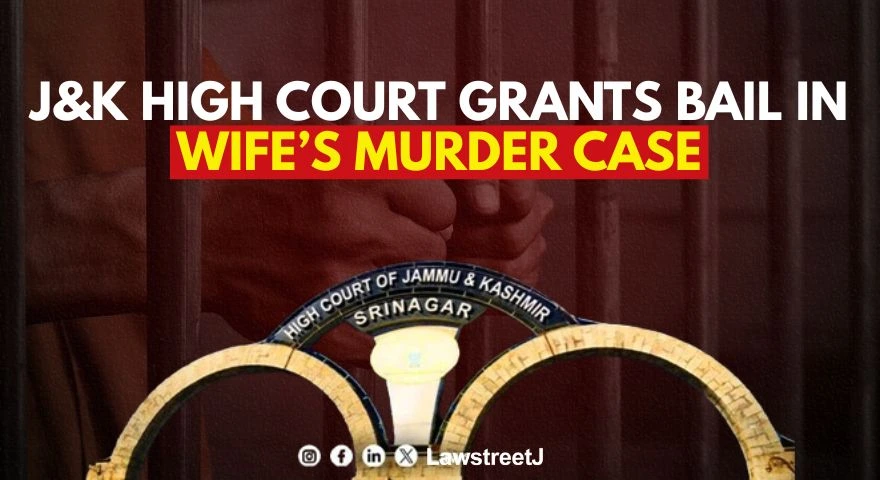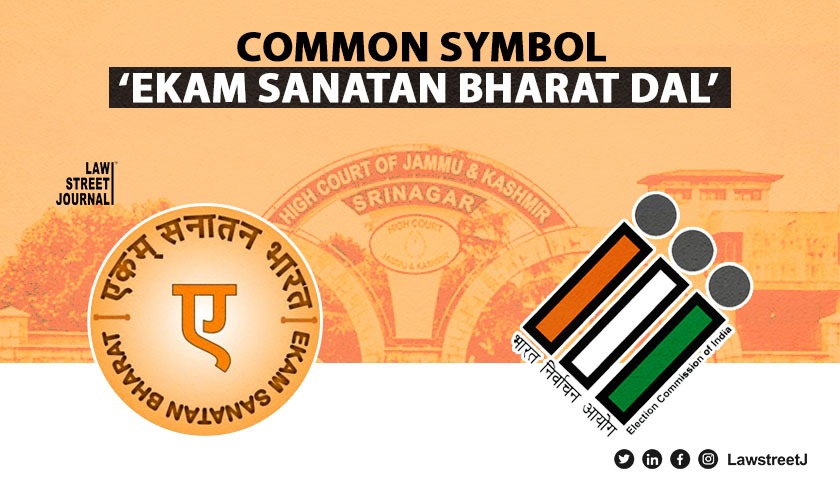Jammu: The Jammu and Kashmir High Court has granted regular bail to a man accused of murdering his wife with a firearm, observing that the prosecution failed to produce any clinching or credible evidence connecting him to the crime, despite examining 13 out of 20 witnesses.
Justice Rajesh Sekhri delivered a significant judgment emphasizing the paramount importance of personal liberty and the necessity of credible evidence before denying bail in serious criminal cases.
The court was hearing a bail application filed by Yashpaul Sharma against the Union Territory of Jammu & Kashmir. It noted:
“Applicant, an undertrial before the learned Principal Sessions Judge, Rajouri, in a case arising from FIR No. 63/2023 as File No. 62/Murder Ch. titled ‘UT v. Yash Paul’, is aggrieved by the order dated 05.02.2025 passed by the trial court, by which his application for regular bail was declined.”
Discussing the background of the case, the court observed:
“During the investigation, it surfaced that the applicant, Yash Paul, was the Sarpanch of Village Patrara and a Member of the Village Defence Committee (VDC), and had been issued a .303 rifle along with 50 live cartridges. He has one son and one daughter.”
On the constitutional dimension of the case, the court underscored:
“Personal liberty of a citizen is a precious value of our constitutional system, recognized under Article 21 of the Constitution. Courts must consider that the liberty of an individual, whose involvement in an offence has not been established, should not be lightly curtailed, for its deprivation has a profound impact on the individual’s mind.”
Regarding witness testimony, the court stated:
“Both children of the applicant and the deceased, cited as eyewitnesses by the prosecution, testified that their parents shared cordial relations and expressed ignorance about the occurrence.”
The court further noted:
“It is evident from the above that there is not even a single line in the testimonies of the prosecution witnesses examined so far that connects the applicant with the commission of the alleged crime. A detailed examination is unnecessary—a cursory glance at the evidence reveals there is no credible material to implicate the applicant.”
Establishing a key legal principle, the court held:
“In cases involving capital punishment or life imprisonment, bail can be granted only if the court finds reason to believe the accused did not commit the offence. However, in the present case, the material on record clearly lacks any basis to believe the applicant was involved.”
Analyzing specific witness statements, the court observed:
“PW Sanjana, daughter of the petitioner and the deceased, stated she was asleep and unaware of how the gunshot was fired. PW Sahil Sharma, the son, initially claimed during investigation that the applicant had killed his mother. However, like his sister, he did not support the prosecution’s version during the trial.”
The court granted bail with conditions, including furnishing a surety bond of ₹1 lakh, regular appearance before the trial court, and a prohibition on influencing prosecution witnesses or tampering with evidence.
The prosecution alleged that the accused shot his wife with his VDC rifle following a domestic dispute over their son’s DJ business. However, key witnesses—including the couple’s children—failed to support this version during the trial.
Mr. P.N. Raina, Senior Advocate, with Mr. J.A. Hamal, Advocate, appeared for the petitioner. Mr. Bhannu Jasrotia, Government Advocate, appeared for the Union Territory of Jammu & Kashmir.
Case Title: Yashpaul Sharma vs. UT of J&K




![Publicly slapping wife does not constitute outraging modesty: J&K HC [Read Order]](/secure/uploads/2024/02/lj_7549_husband-slapping-wife-publicly.webp)
![Jammu and Kashmir High Court Grants Bail To Gang Rape Accused, Emphasizes Presumption Of Innocence [Read Order]](/secure/uploads/2024/05/lj_6000_5007a767-4748-4bed-9dab-8fa14a4d262b.webp)
![Mere involvement of relatives in anti national activities in the past can not be a ground to deny Govt contracts: J&K and Ladakh HC [Read Judgment]](/secure/uploads/2024/06/lj_3301_79dd6df6-5b62-4057-8762-d0e460af98e6.webp)




